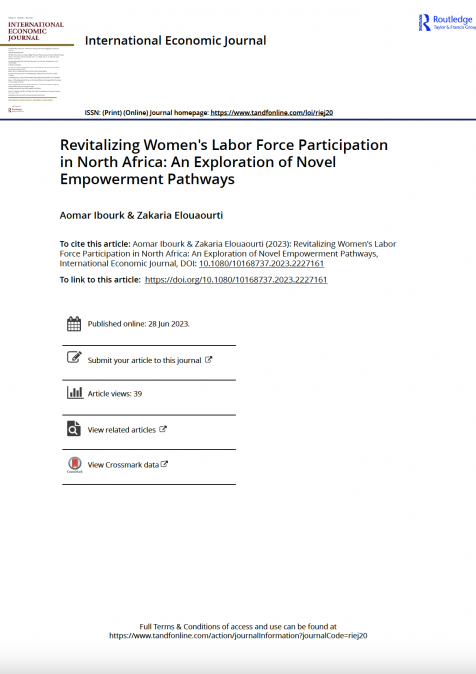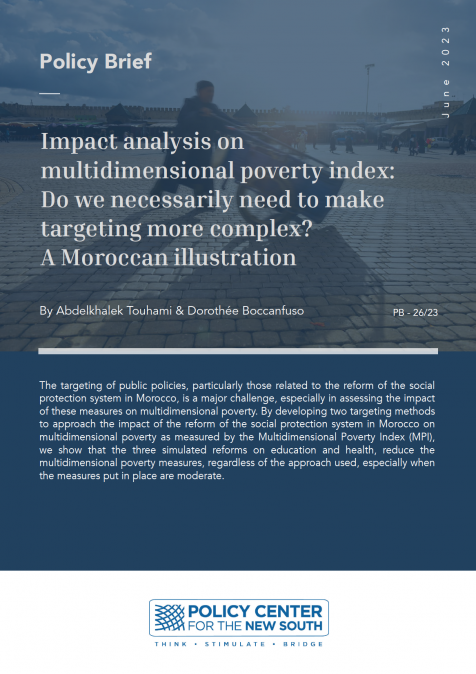Publications /
Research Paper
This paper was originally published on cambridge.org
This paper explores the (de-)routinisation of employment structure in developing countries, through the case of Morocco. We investigate employment (de-)routinisation from an often-overlooked perspective, aiming to elucidate the interplay between the dynamics of occupational employment composition by the level of routine tasks intensity and two structural aspects: premature deindustrialisation and the prevalence of informal labour.
Our findings, based on tertile analysis and regressions, do not fully support the hypothesis of employment structure de-routinisation. At the same time, we could not identify a clear process of routinisation similar to that observed in developing countries undergoing the first stage of the traditional structural transformation process. Rather, we identified an inverted U-shaped pattern in the dynamics of occupational employment, indicative of a rise in intermediate routine-intensive occupations.
We emphasise two key factors, with opposite effects that have contributed to this atypical pattern: The first aspect is premature deindustrialisation, which according to our shift-share decomposition, has adversely affected highly routine-intensive jobs, contrasting with the routinisation trend observed in countries that have experienced a more traditional process of structural transformation. The influence of premature deindustrialisation in terms of de-routinisation is somewhat mitigated by the increasing prevalence of occupations demanding intermediate routine tasks, particularly within the services and construction sector. Regarding the second structural aspect – the prevalence of informal labour – our three-way interaction model indicates a lower susceptibility of informal jobs to de-routinisation compared to their formal counterparts within the same industry. Consequently, the prevalence of informal employment has slowed down the process of de-routinisation of employment structure.











